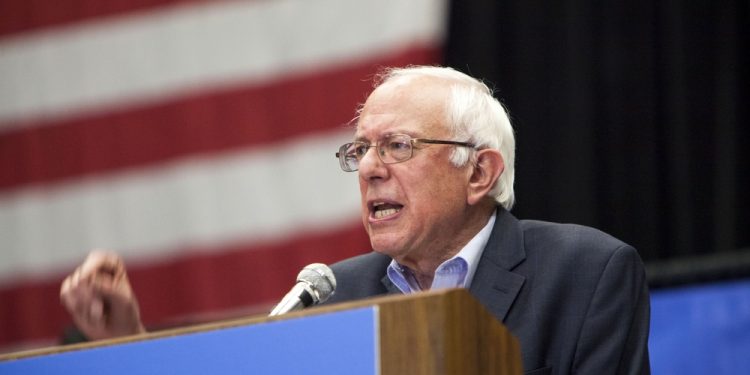
By leaving out necessary contextual information, Bernie Sanders is not giving Americans the full truth about his healthcare plan.
June 3, 2019

By leaving out necessary contextual information, Bernie Sanders is not giving Americans the full truth about his healthcare plan.
June 3, 2019
At a Fox News town hall in April, Bernie Sanders claimed that his Medicare for All proposal would save American families money on healthcare costs. He further claimed that any tax increase needed to pay for the new single-payer system would end up costing less than what families would save under his Medicare for All system.
The Washington Post, citing Sanders’s comments at the town hall and in the past, called Sanders’s claim “misleading.”
“As an example, Sanders told the audience that the average self-employed family of four would pay less for health care under his plan than the $28,000 a year they currently pay. That estimate comes from the 2018 Milliman Medical Index. The index estimates the total cost of health care for an average family of four and includes fees usually covered by an employer. Leaving out this aspect, as well as referring to the family as self-employed, makes Sanders’s claim misleading.
“Sanders’s campaign told the Fact Checker that he misspoke when he said “self-employed,” rather than making clear that the family gets insurance via an employer. Sanders has tweeted this $28,000 figure without the “self-employed” qualifier, but even so, he’s leaving out important information.”
The Post noted that employers cover about 57% of the $28,000 that Sanders said that the average family of four paid. That would leave the average family to be responsible for $12,000 in “visible” health care costs. Hence, Sanders’s plan to raise taxes would have to total less than the $12,000 that the average family of four pays now.
There are four components of Sanders’s Medicare for All plan that the Washington Post cited as having a dramatic impact on the cost of the plan.
A recent study from the Urban Institue estimated that Medicare for All would add $32.6 trillion over ten years in national spending. This total cost assumes that hospital payments were kept at current private insurance rates while only doctor payments were reduced in a new system.
On the contrary, Medicare payment rates are lower than private health insurance rates. In theory, this would make Medicare for All cheaper than the current system. However, providers and the Congressional Budget Office both raise concerns that this would lower the quality and availability of care.
Sanders also wants to include a generous benefits package as part of his Medicare or All vision. Long-term care is particularly expensive and will inflate the cost of Medicare for All. Additionally, Bernie’s vision includes dental coverage as baked into his plan.
Covered individuals are usually required to pay some of the cost for care through monthly premiums, deductibles, or other methods of cost sharing. Sanders is proposing to eliminate cost-sharing which could lead to overuse of the health care system, triggering long waits for basic care, and adding “$435 billion to annual national health spending.”
Finally, Medicare for All advocates believe that a new health care system would be cheaper due to lowering administrative costs since it costs less to run Medicare plans than private insurance plans. However, both the Urban Institute and the Mercatus Center found that even with administration savings that running a Medicare for All system would be more expensive than the current system.
Bernie Sanders’s vision for health care and his belief that it would end up being cheaper for American families is built on the back of many best-case scenarios. As history shows, the intended consequences never end up being the only consequences.
In summary, the Washington Post Fact Checker gives Sanders a ‘not telling the whole story’ rating for his comment at the Fox News Town Hall. By leaving out necessary contextual information, Sanders is not giving Americans the full truth about his healthcare plan.